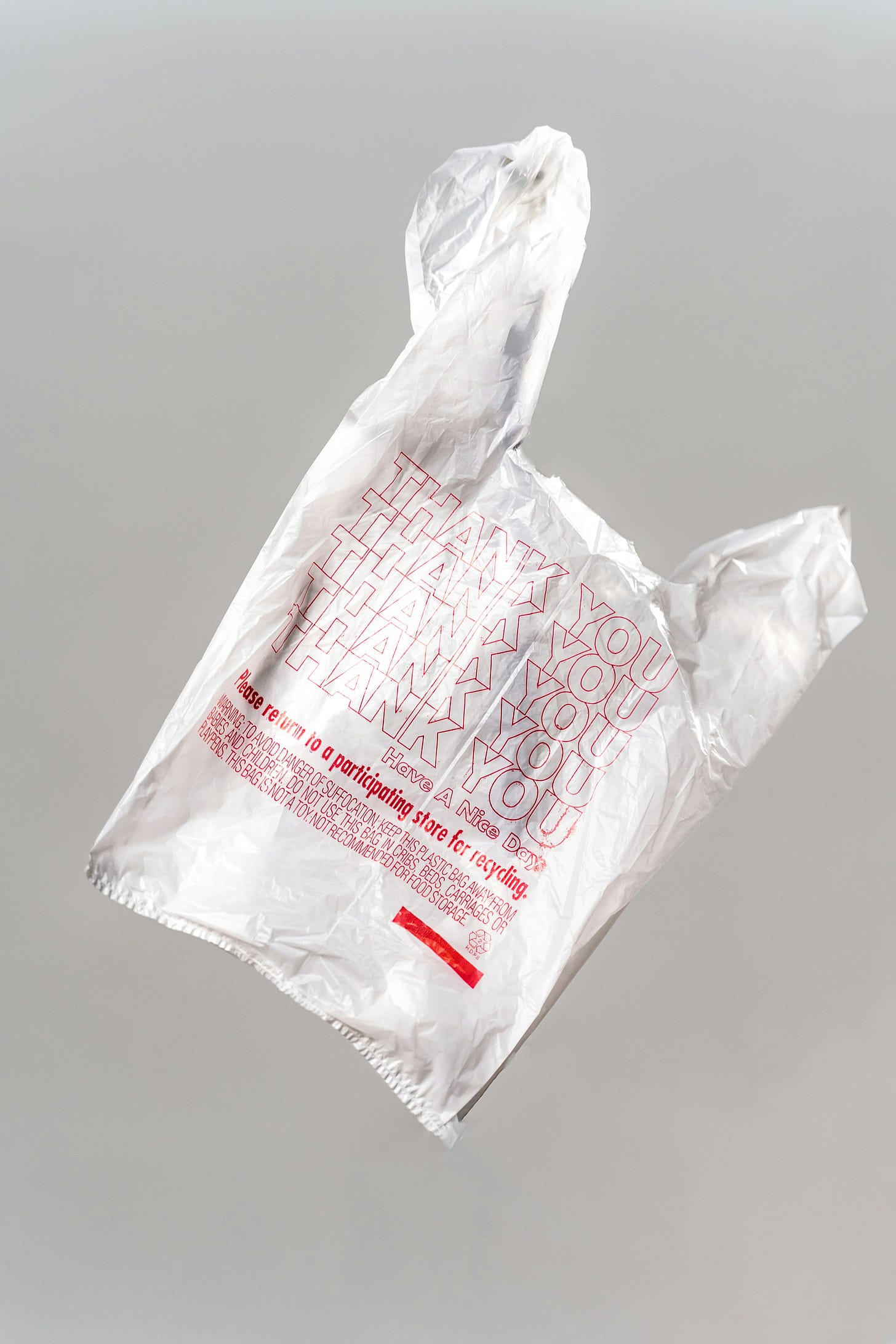The Silly Plastic Bag Bans That Cause More Plastic Waste
Blue states would have been better off by letting people have normal things
Plastic bag bans are a feature of blue cities and states. They are an easy way for politicians who think they are smarter than everyone else to show they care for the environment. California was the first state to pass legislation banning single-use plastic bags in 2014. There are 13 states and over 500 cities that ban “single-use” plastic bags and more coming. These bans make people “feel” like they are helping the environment, but the opposite could be true.
Their ban left a loophole that increased the amount of plastic waste by 47% according to a report by the consumer advocacy group CALPIRG. Single-use bags, which use less plastic, were replaced with thicker and “reusable” plastic bags for a small fee. The problem is most consumers didn’t reuse them and threw them out after a single use.
The Los Angeles Times reported, "157,385 tons of plastic bag waste was discarded in California the year the law was passed. By 2022, however, the tonnage of discarded plastic bags had skyrocketed to 231,072 — a 47% jump. Even accounting for an increase in population, the number rose from 4.08 tons per 1,000 people in 2014 to 5.89 tons per 1,000 people in 2022."
The problem is most consumers didn’t reuse them and threw them out after a single use.
California lawmakers accomplished the exact opposite of their good intentions. They would have been better off staying with the plastic bags we always have used. Why did it take California politicians so long to figure out the damage they caused? They are supposed to be the best and brightest “experts” among us. Democrats are trying to pass another law that bans stores from providing the thicker plastic bags.
New Jersey Democrats thought they learned from California Democrats’ mistake and enacted a similar law in 2022. Instead of providing single-use plastic bags to shoppers, they could purchase reusable bags made of woven and non-woven polypropylene plastic. It turns out Democrat lawmakers who aren’t experts in plastic made another huge mistake.
California lawmakers accomplished the exact opposite of their good intentions.
The study reported, "[Six times] more woven and non-woven polypropylene plastic was consumed to produce the reusable bags sold to consumers as an alternative. Most of these alternative bags are made with non-woven polypropylene, which is not widely recycled in the United States and does not typically contain any post-consumer recycled materials. This shift in material also resulted in a notable environmental impact, with the increased consumption of polypropylene bags contributing to a 500% increase in greenhouse gas (GHG) emissions compared to non-woven polypropylene bag production in 2015."
Reducing our plastic consumption and waste is a good thing. The problem is we don’t do it in the smartest ways. Reducing plastic waste is a complex issue and can’t be done with simple solutions and without exploring the consequences. California Democrats assumed everyone would conform to their desired behavior and “reuse” the bags with more plastic. Let’s hope it doesn’t take areas with bag bans another ten years to get a solution that works.




